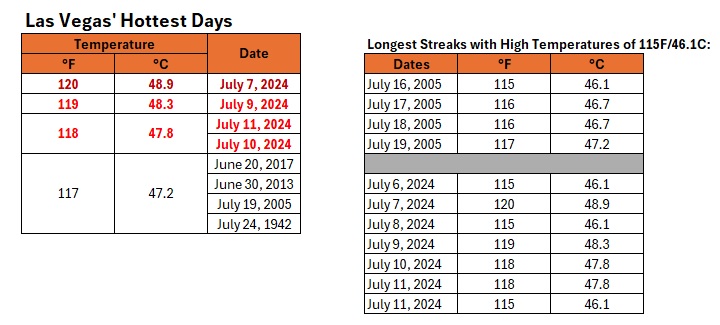PRINT AS PDF
At the time of writing… it is altogether too hot to write at any great length about it. The discomfort… is something which everyone has, doubtless, but a too vivid remembrance and needs no further reminder of it. –Boston Daily Advertiser, June 2, 1879
The above description provides a vivid illustration of the record 96° first day of June that brought intense discomfort to people all across New England. That record still stands today, even in today’s warming climate that will ultimately lead to its being surpassed.
That heat was short-lived. Two days later, the mercury was confined to the chilly 50s. Las Vegas suffered from even more blistering heat earlier this month in a heatwave that toppled records across parts of California, Oregon, Nevada, and Arizona. During that heatwave, Las Vegas surpassed its previously highest-recorded temperature on four days. Las Vegas also experienced seven consecutive 115° or hotter days. The old record from 2005 was four days.
Nights brought no relief. Already, Las Vegas has seen more 90° or above nights this summer than it had ever experienced during an entire calendar year.
Some highlights:
Climate change has been driving an especially warming of the Southwestern United States. In Phoenix, Summer 2007 toppled the record for hottest summer that had stood since 1981. Six years later, that record was beaten again. Then, in 2020, Phoenix smashed that record. Three years later, that mark was also eclipsed. In addition, Phoenix experienced its first 100° monthly average temperature on record in July 2023. This month might wind up becoming the second such month.
In Las Vegas, the Summer 1994 record was broken in 2007. New summer records were then set in 2016, 2017, and 2018. Through mid-July, Summer 2024 has been the hottest on record for both cities.
Continuing greenhouse gas emissions will amplify climate change in coming years. On the present trajectory, hotter summers and even more severe heatwaves lie ahead.



